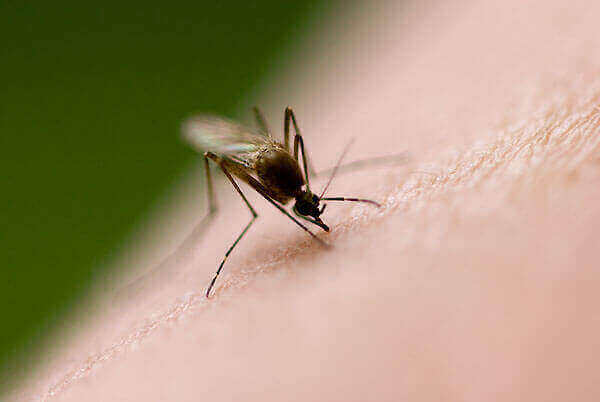Travel tips: Reduce your risk of contracting Zika virus
Traveling abroad for spring break or work? It’s always important to stay aware of mosquito-borne illnesses, but this year one virus has people more worried than usual.
Over the past year, Zika virus has become widespread in many Latin American and Caribbean countries. Minimize your risk of contracting Zika virus and other mosquito-borne illnesses by packing insect repellent containing at least 30 percent DEET in addition to condoms and SPF 30 sunscreen.

A mosquito feeds on the hand of Susan Paskewitz, a University of Wisconsin—Madison entomology professor and expert on mosquito species and mosquito-related public-health issues. Photo: Jeff Miller
Zika virus is primarily transmitted to people through mosquito bites, but may also be transmitted sexually. In most cases, the virus causes either no symptoms or only a slight illness — fever, rash, red eyes, and joint pain — that typically lasts up to a week.
The virus poses a particular risk to women thinking about becoming pregnant or who are pregnant. Microcephaly — a rare but serious birth defect— has been linked to Zika virus. The Centers for Disease Control and Prevention (CDC) advises women in this situation to postpone travel to certain destinations in Latin America and the Caribbean. Men who travel to these areas should understand the transmission risks to their partners and use condoms while on vacation and after they return to minimize partners’ risk.
Dengue and Chikungunya viruses are also mosquito-borne and can be found in some of the same places as Zika virus. The CDC also recommends that travelers to countries where mosquito-borne viruses have been reported use insect repellent and wear long sleeves and pants. There is no vaccine to prevent Zika virus, nor is there medicine to treat it.
International travelers should visit a travel clinic before departure to learn about country-specific recommendations to prevent illness — including needed vaccines and medications — and get up-to-date information about their destinations from the U.S. State Department.
Faculty and staff members should contact their primary care provider if they develop a fever or illness when they return from abroad.
For the most up to date information on Zika virus, visit the CDC. For campus travel resources, visit the UW-Madison International Travel site.
